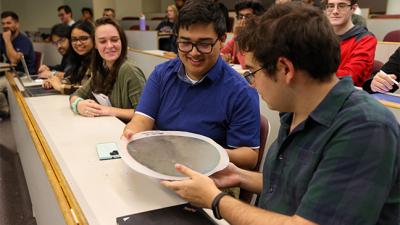Universities Don’t Want AI Research to Leave Them Behind
Rensselaer Researcher Draws Insights from COVID-19 to Inform Improved Health Care in Times of Crisis
Among the many challenges that the COVID-19 pandemic presented, disruptions in health care were among the most impactful. The pandemic was large-scale, lasted over two years, and resulted in millions of hospitalizations and 1.2 million deaths in the United States alone. Meanwhile, routine medical services were affected by the pandemic: Patients avoided health care visits for fear of contracting the virus; stay-at-home policies left patients without routine care; and there was a limited supply of services.
RPI To Host NORDTECH Workforce Development Summit
On July 18, Rensselaer Polytechnic Institute (RPI) and NORDTECH will host a day-long Workforce Development Summit on the RPI campus that will bring together government, industry, nonprofits, and academic partners to address education and workforce development in chips and semiconductors critical to the prosperity and security of the nation.
Rensselaer Professor James Hendler Elected to WAMC Board of Trustees
At its annual meeting in May 2024, WAMC elected Rensselaer Polytechnic Institute’s James Hendler, Ph.D., to its Board of Trustees. At RPI, Hendler is the director of the Future of Computing Institute, Tetherless World Professor of Computer, Web, and Cognitive Sciences, and director of the RPI-IBM Future of Computing Research Collaboration.
2024 Awardees of the Teaching and Learning Collaboratory Seed Projects
The Undergraduate Department and the Teaching and Learning Collaboratory are excited to announce the winners of the 2024 seed project call for proposals. The purpose of the seed projects are to develop a project to the point that it is competitive for external funding. The projects test new pedagogical approaches or technologies that will impact student learning. The grants are in partnership with funding from Undergraduate Education and the Teaching and Learning Collaboratory. And to this point, we wish to extend a big congratulations to this year’s winners!



